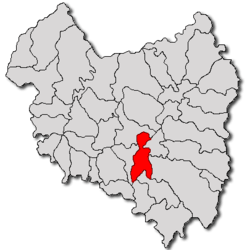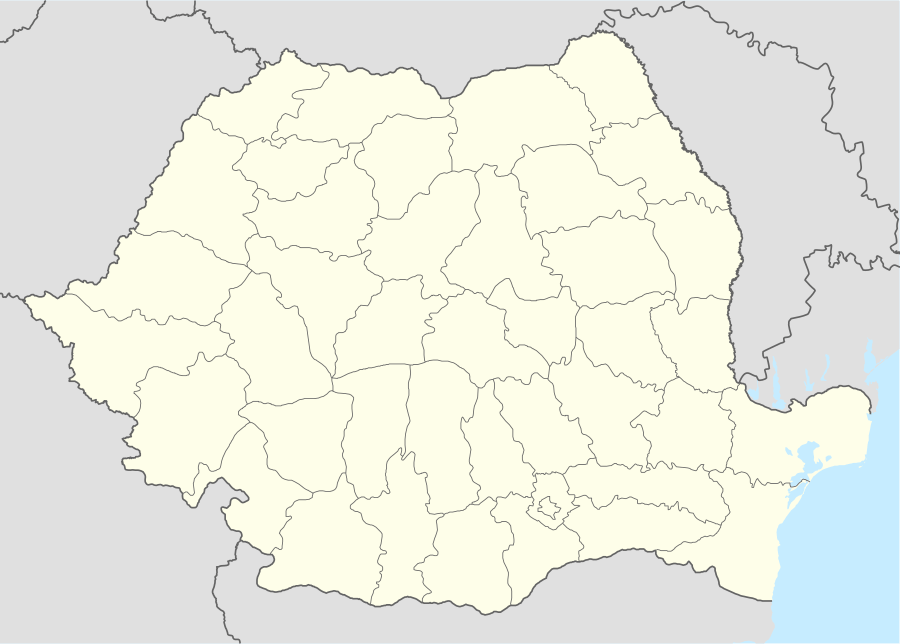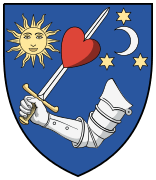Boroșneu Mare
Boroșneu Mare (Romanian: Boroşneu Mare; Hungarian: Nagyborosnyó) is a commune in Covasna County, Transylvania, Romania composed of six villages: Boroșneu Mare, Boroșneu Mic (Kisborosnyó), Dobolii de Sus (Feldoboly), Leț (Lécfalva), Țufalău (Cófalva) and Valea Mică (Kispatak).
Boroșneu Mare Nagyborosnyó | |
|---|---|
 Location in Covasna County | |
 Boroșneu Mare Location in Romania | |
| Coordinates: 45°49′N 26°0′E | |
| Country | |
| County | Covasna |
| Government | |
| • Mayor | László Bartha (UDMR) |
| Population (2011)[1] | 3,097 |
| Time zone | EET/EEST (UTC+2/+3) |
| Vehicle reg. | CV |
Demographics
The commune has an absolute Székely Hungarian majority. According to the 2002 census, it had a population of 3,074 of whom 95.48% or 2,935 were Hungarian.
Leț
Leț village, which lies on the Dalnic River, had 650 people in 2002, of whom 557 were Székely. It was settled during the Stone Age. Evidence of multicoloured painting has been found which exhibits strong Bulgarian traits.[2] The village was first mentioned in a document of 1333, when it was destroyed by the Mongols. It is the site of the Diet of Lécfalva (25 October 1600), notable for being the first time the word "Unitarian" was used.[3] In 1960, the local manor was demolished.
References
- "Populaţia stabilă pe judeţe, municipii, oraşe şi localităti componenete la RPL_2011" (in Romanian). National Institute of Statistics. Retrieved 4 February 2014.
- Gábor Vékony The Prehistory of Transylvania, ch.9
- A. Gordon, Heads of Unitarian History
